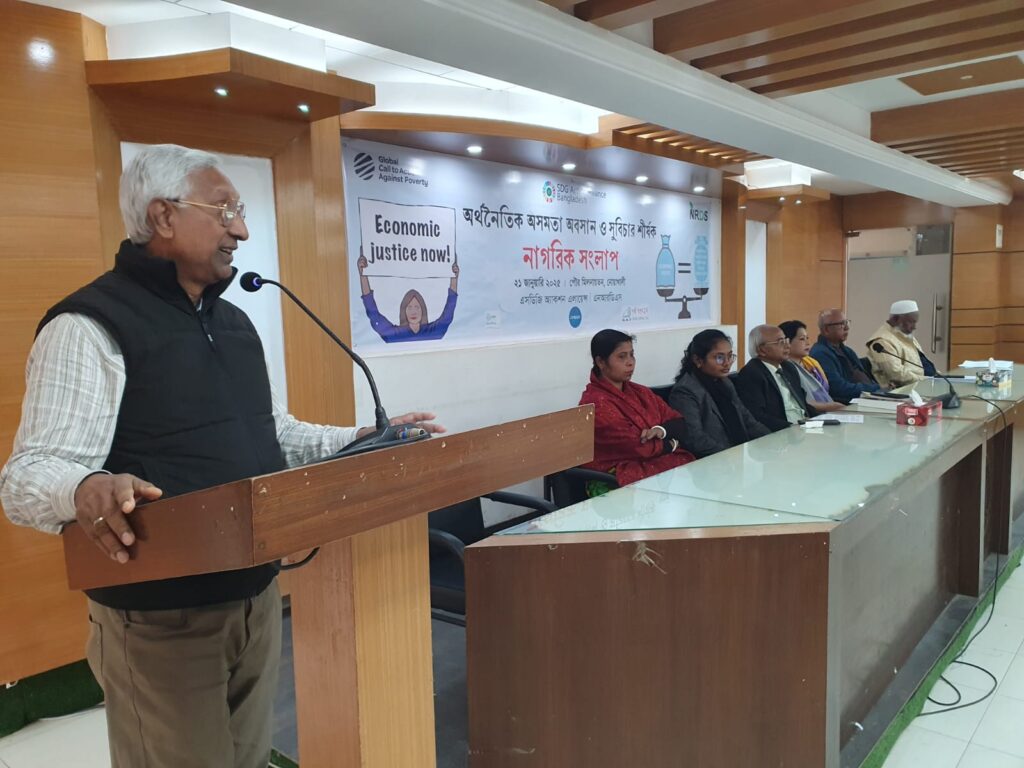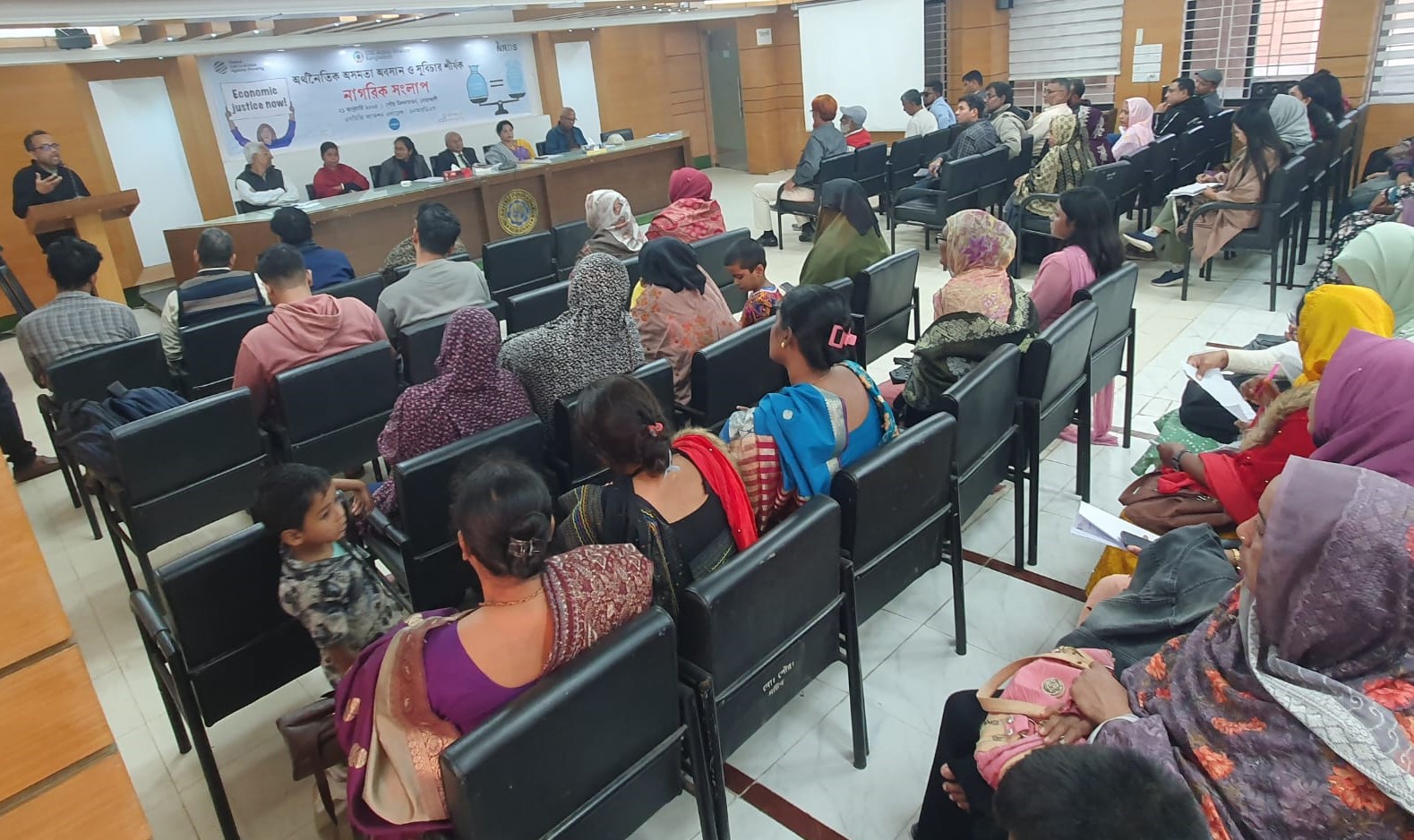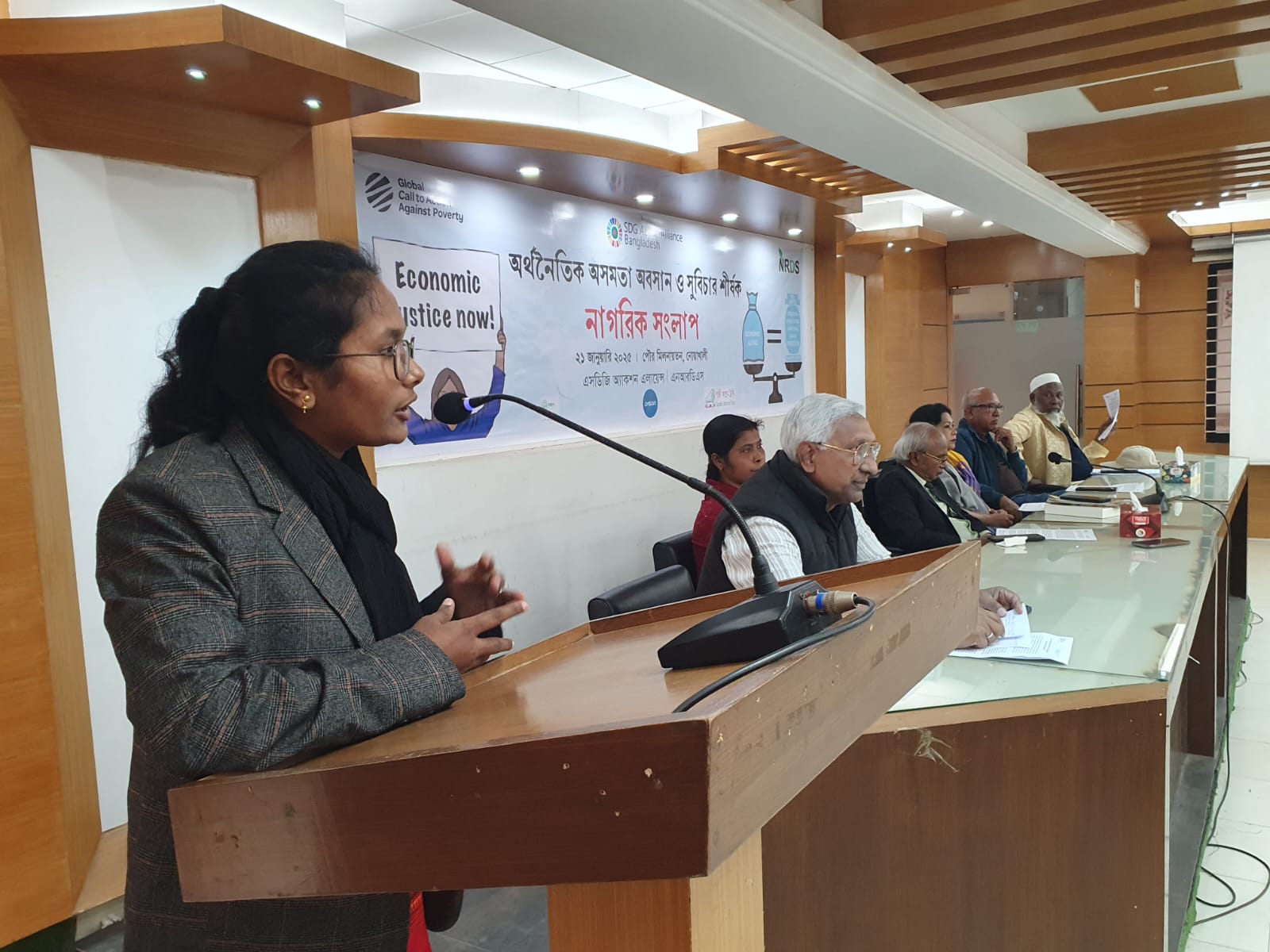The dialogue highlighted the long-standing efforts of civil society in addressing economic inequality and stressed the need to amplify their influence on governmental and international policymaking. Speakers pointed out that while the wealthy consume the majority of national resources, rural farmers—who provide food and raw materials for industries—receive only a minimal share. Despite this, farmers bear a disproportionate burden of indirect taxes. To address this disparity, speakers proposed reforms to create a non-discriminatory tax system that promotes economic justice.
Key recommendations from the dialogue included:
- Implementing a progressive and gender-sensitive tax system.
- Reinvesting tax revenues into sustainable development for marginalized communities.
- Exploring alternative wealth-generation strategies through domestic resource mobilization.
- Supporting the UN Tax Convention to curb corporate tax abuses, prevent illicit financial flows, and promote a fair global tax system.
- Dismantling corporate monopolies, ensuring tax justice, and ending tax evasion.
- Restructuring debt systems by canceling unsustainable, illegal, and unjust debts to prevent countries from falling into debt traps.
The event was presided over by Adv. Habibur Rasul Mamun, President of Sujan, and moderated by Abdul Awal, Executive Director of NRDS and Convener of the SDG Action Alliance. A discussion paper was presented by Monowara Akhter Minu, enriching the discourse. Over a hundred representatives from development organizations, including Gandhi Ashram Trust, PRAN, Bandhan, and NRDS, as well as civic organizations, participated in the dialogue.
Speakers included young human rights activist Faiza Sultana, student Shakin from Noakhali Science and Technology University, farmer representative Nur Uddin, teachers Lucky Das, Abul Kashem, and Laila Parveen, journalist Suman Bhowmik, PRAN Executive Director Nurul Alam Masud, and Gandhi Ashram Secretary Raha Nabakumar.
The dialogue concluded with a strong call to action for continued advocacy, policy reforms, and collective efforts to achieve economic justice and eliminate inequality. The event reinforced the importance of inclusive and equitable economic policies to ensure a just society for all.



